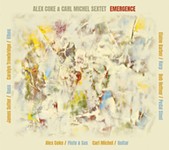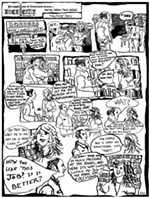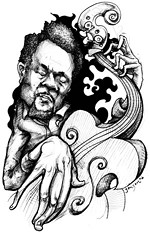Miles Davis
In Box
Reviewed by Harvey Pekar, Fri., Aug. 15, 2003

Miles Davis
Miles Davis in Person Friday and Saturday Nights at the Blackhawk, Complete (Columbia) Cut live at the Blackhawk nightclub in San Francisco April 21-22, 1961, this 4-CD box set captures Miles Davis with one of his best bands. That would be the great post-bop tenorman Hank Mobley, admired so much for his Blue Note LPs, and the superb rhythm section of Wynton Kelly, among the most admired piano accompanists in jazz history, bassist Paul Chambers, and drummer Jimmy Cobb. Not only were these musicians superb individually, together they grooved beautifully. That said, this wasn't one of Davis' revolutionary bands, as their repertoire here indicates. Davis plays a lot of tunes associated with him, including standards "If I Were a Bell," "On Green Dolphin Street," "All of You," "Bye Bye Blackbird," and "Autumn Leaves," as well as jazz standards "Oleo," "Walkin'," and "Round Midnight." In terms of the solos, Davis is in solid form, playing crisp open horn and tender muted spots. He played with more imagination and inspiration elsewhere, but what's just good by his standards is great by almost any other jazz trumpeter's. Mobley, once titled "the middleweight champ of the tenor," does a top-notch job here, producing a dark, rich tone that's melodically inventive and rhythmically relaxed, indicating that Lester Young influenced him more than most post-bop tenormen. He's known for his lyrical improvising, but his infectious up-tempo works here. The soloing of Kelly deserves praise not only for its high quality, but consistency. Everything he plays seems right. He synthesizes the styles of Bud Powell and Red Garland, never at a loss for ideas; he puts his phrases together with excellent continuity and swings his tail off. For several years after this, even with adventurous young musicians like Herbie Hancock and Tony Williams in his band, Davis continued to employ a conservative repertoire. In 1964, he hired Wayne Shorter and the next year cut the revolutionary E.S.P. album. For years after that, Miles Davis was in the forefront of jazz innovators.![]()
![]()
![]()
![]()
![]()










